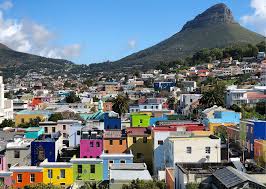The City of Cape Town has officially approved the 150 Buitengracht development — a mixed-use project that will include 40 residential units, retail space, a rooftop restaurant, and underground parking. The project, spearheaded by Flyt Property Investment, is located near Bo-Kaap, one of South Africa’s most historic and culturally rich communities.
The approval comes after several years of public engagement and back-and-forth with residents of the Bo-Kaap area. Many locals have strongly opposed the project, arguing that it threatens the heritage and historical integrity of the neighbourhood.
Bo-Kaap, known for its colourful houses, cobbled streets, and deep Muslim heritage, has long been seen as a symbol of Cape Town’s cultural diversity. It is also home to the Auwal Masjid, the oldest mosque in South Africa, which was built in 1794.
Flyt Property Investment said that the development plans were adjusted in response to concerns raised by residents and the Bo-Kaap Civic and Ratepayers Association. The South African Heritage Resources Agency helped facilitate dialogue between developers and the community.
Significant changes have been made to the original 2021 design. These include reducing the building’s height from eight storeys to six — a drop of 6.6 metres. The part of the building facing Buitengracht Street will now have only three storeys instead of five. The developers also reduced the site coverage by 24%, from 650 square metres to 493 square metres.
Other changes include decreasing the total floor area from 2,586 square metres to 2,385 square metres, and the floor factor has been reduced from 3.9 to 3.6.
Despite community resistance, the project will proceed with its mix of studio and two-bedroom apartments. The development will also feature ground-floor shops, a rooftop restaurant offering views of Table Mountain, and underground parking for residents and guests.
Cape Town Mayor Geordin Hill-Lewis has described the agreement as a “model” for how cities can carry out development projects in culturally sensitive areas. He said the final plan balances the city’s housing and commercial needs with the preservation of heritage and cultural identity.
“This project shows how community collaboration can shape a more inclusive and heritage-aware Cape Town,” the Mayor said in a statement.
Construction on the 150 Buitengracht development is set to begin later in 2025 and is expected to be completed by 2026. All appeals and legal authorisations have now been finalised.
While some residents remain unhappy with the decision, city officials believe the adjustments made to the original plan show respect for the historical value of Bo-Kaap while also helping Cape Town grow in a sustainable way.
Bo-Kaap remains a sensitive area for development due to its unique architectural styles, historic landmarks, and strong sense of community. Many residents feel that large-scale developments could lead to gentrification, pushing out long-term families and changing the area’s identity.
However, the city argues that Cape Town is facing increasing pressure to provide more housing and economic opportunities. Mixed-use developments like 150 Buitengracht are seen as part of the solution, especially when modified to suit the surrounding environment.
The coming months will be important as all eyes remain on how the project unfolds and how the developer continues to engage with the community as construction begins.
